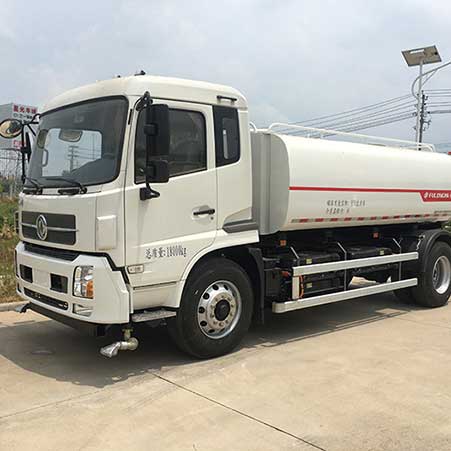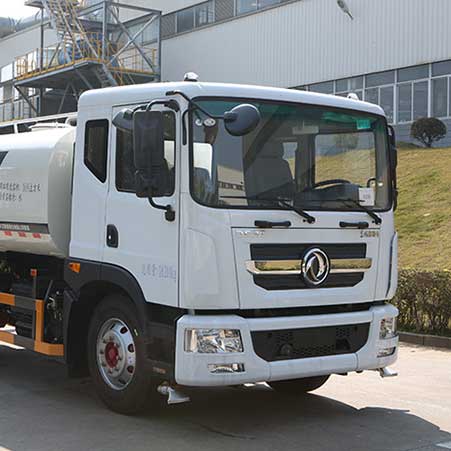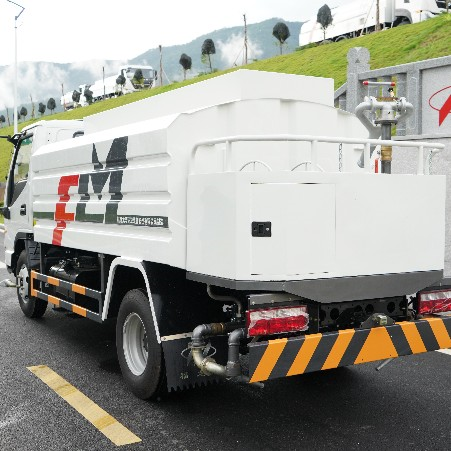Urban planning involves designing and organizing a city’s physical structure and services to ensure its inhabitants’ well-being. As cities grow, planners must address many challenges, including housing, transportation, waste management, and, most importantly, water supply. The task of managing water resources in urban areas is daunting. Infrastructure limitations, aging pipes, and increasing demand often lead to shortages, especially in regions prone to droughts or rapid population growth. Moreover, natural disasters and emergencies can further strain existing systems, highlighting the need for flexible solutions.
The Functionality of Water Tanker Trucks

Water tanker trucks are specialized vehicles designed to transport and distribute large quantities of water. They consist of a tank mounted on a truck chassis, equipped with pumps and hoses for easy loading and unloading. The tanks are made from materials such as stainless steel or food-grade plastic to safely transport potable water. Some tanker trucks also feature insulation or heating elements to maintain water temperature.
These trucks are versatile, with models designed for different purposes, including:
- Potable Water Supply: Providing clean, drinkable water to areas with limited access or during infrastructure repairs.
- Firefighting Support: Supplying water to firefighting efforts in areas without adequate hydrant coverage.
- Construction and Maintenance: Delivering water for dust control, concrete mixing, and equipment cleaning at construction sites.
- Disaster Relief: Transporting emergency water supplies during natural disasters or infrastructure failures.
Water Tanker Trucks in Urban Planning
Water tanker trucks play a vital role in urban planning by offering temporary and flexible solutions to water supply challenges.
- Infrastructure Support: Tanker trucks can supplement water supply during infrastructure upgrades or maintenance, ensuring residents have continuous access to water even when pipes are being repaired or replaced.
- Emergency Response: In the aftermath of natural disasters, such as earthquakes or hurricanes, water tanker trucks can quickly deliver potable water to affected areas, preventing shortages and aiding in recovery efforts.
- Population Growth: As cities expand, water tanker trucks provide a stopgap measure to meet the increased demand until permanent infrastructure can be developed.
Benefits of Using Water Tanker Trucks
Flexibility and Mobility
One of the primary advantages of water tanker trucks is their flexibility and mobility. Unlike fixed infrastructure, tanker trucks can be deployed to different locations as needed, making them an ideal solution for temporary or emergencies. They can navigate urban environments with ease, reaching areas where traditional water distribution systems may not yet be available.
Cost-Effectiveness
Water tanker trucks offer a cost-effective alternative to constructing new infrastructure. Building pipelines and treatment facilities requires significant time and financial investment, while tanker trucks can be deployed quickly and at a fraction of the cost. This makes them an attractive option for cities facing budget constraints or those needing immediate solutions.
Environmental Impact
Modern water tanker trucks are designed with environmental considerations in mind. Many are equipped with fuel-efficient engines and low-emission systems to minimize their carbon footprint. Additionally, using tanker trucks to transport water can reduce the need for single-use plastic bottles, further decreasing environmental impact.

Conclusion
Water tanker trucks play a critical role in urban planning by providing flexible, cost-effective, and environmentally friendly solutions to water supply challenges. Their versatility makes them indispensable in supporting infrastructure, responding to emergencies, and adapting to the changing needs of growing cities. As urban areas continue to evolve, the integration of water tanker trucks into urban planning strategies will be essential in ensuring sustainable and resilient water management systems.
FAQs
How do water tanker trucks ensure the quality of potable water?
Water tanker trucks are equipped with tanks made from materials that prevent contamination, such as stainless steel or food-grade plastic. Additionally, they undergo regular cleaning and maintenance to ensure that the water remains safe for consumption. Many trucks also have built-in filtration systems to further purify the water before delivery.
What are the limitations of using water tanker trucks in urban areas?
While water tanker trucks offer many benefits, they also have limitations. They can only transport a limited volume of water, making them less suitable for long-term solutions in areas with high demand. Traffic congestion in urban areas can also impede their ability to deliver water quickly. Additionally, the cost of fuel and maintenance can add up over time.
How can cities optimize the use of water tanker trucks in their planning efforts?
Cities can optimize the use of water tanker trucks by integrating them into emergency preparedness plans and infrastructure development strategies. By maintaining a fleet of well-equipped trucks, cities can quickly respond to emergencies and provide temporary water solutions during infrastructure upgrades. Additionally, investing in modern, fuel-efficient trucks can help reduce operational costs and environmental impact.







